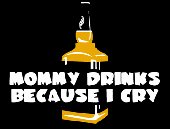What is a Security Clearance
WHAT IS A SECURITY CLEARANCE?
Certain federal employees and certain employees in the private sector are required to have security clearances because their job requires them to have access to classified documents. Various other work takes place in secured facilities. The occupant of any such job is said to hold a "sensitive" position, defined as "any position, by virtue of its nature, could bring about a material adverse effect on national security". At any given time, there are about 3 million people with security clearances. In addition, there are about 1.5 million security clearances in the hands of private contracting or consulting firms. Contractors participate in what is called the industrial security program administered by the Defense Industrial Security Clearance Office (DISCO) which is part of the Joint Information Systems Technology (JIST), a military agency.
One out of every thirty Americans has some sort of security clearance. It has been estimated that one out of every thousand of these can be expected to compromise the secrets they are entrusted with. Some need money, some can be blackmailed, some are disgruntled and want revenge, and some are just sloppy. American industry is a prime target for espionage as well as domestic terrorism and white collar crime.
A security clearance is technically a license issued by a department head of a department, division, or agency of the federal government, and the type of security clearance one can be approved for also depends upon the department, division, or agency involved. For classification purposes, the types of security clearances are:
confidential <br>
secret <br>
top secret <br>
sensitive compartmentalized information (SCI)
The confidential security clearance is the easiest to obtain. Whereas other classifications will almost always involve a background check by the Defense Investigative Service, clearance programs for a confidential classification may be operated by the agencies themselves, like the FBI, the Energy Dept., and the State Dept.
Secret (sometimes called "ordinary secret") and top secret classifications almost always have some amount of military involvement in the clearance process, and these types of licenses are typically found in agencies like the CIA or NSA. One of the differences between secret and top secret is how "expansive" the background check is, i.e., how far and deep the investigation goes into your dependents, friends, and relatives.
SCI classifications are only cleared for a few people, and the background investigation process as well as the continual monitoring is extremely intensive.
The amount of time it takes to receive a security clearance is usually 6 months to a year, if all goes well. Rarely if ever are temporary clearances granted during the pendency of the review process.
THE DEFENSE INDUSTRY
National security ultimately depends on protecting science and industry, so lots of security clearances are involved with companies working on defense-related projects. It doesn't matter if the company is holding a government contract or not; any R&D venture needs to be protected. The frequency of companies holding regular government contracts is growing, however. Here's a top ten list:
PRIMARY DEFENSE CONTRACTORS:
1. McDonnel Douglas<br>
2. General Dynamics<br>
3. General Electric<br>
4. Lockheed<br>
5. General Motors<br>
6. Raytheon<br>
7. Martin Marietta<br>
8. United Technologies<br>
9. Boeing<br>
10. Grumman
Expect to see the highest security countermeasures in the above companies. However, there are numerous other companies involved in activities that may need to be protected. The following is a list of the eighteen (18) technology areas of the U.S. that have been the most common targets of espionage:
MILITARILY CRITICAL TECHNOLOGY LIST (MCTL):
1. Aeronautics Systems<br>
2. Armaments and Energetic Materials<br>
3. Chemical and Biological Systems<br>
4. Directed and Kinetic Energy Systems<br>
5. Electronics<br>
6. Ground Systems<br>
7. Guidance, Navigation, and Vehicle Control<br>
8. Information Systems<br>
9. Information Warfare<br>
10. Manufacturing and Fabrication<br>
11. Marine Systems<br>
12. Materials<br>
13. Nuclear Systems<br>
14. Power Systems<br>
15. Sensors and Lasers<br>
16. Signature Control<br>
17. Space Systems<br>
18. Weapons Effects and Countermeasures
SECURITY CLASSIFICATION AND CODE WORDS
The Intelligence Community operates on the basis of CODE WORDS for just about everything. There is a technical distinction between a code word and a nickname. A code word is usually a single, five-letter word selected from a list contained in a document known as JANAP 299 (Joint Army, Navy, Air Force Publication). A code word always is assigned a classified meaning. A nickname usually consists of two words and is assigned an unclassified meaning.
TOP SECRET UMBRA, for example, indicates that information about the operation with the code word "umbra" is top secret. Employees may have a nickname for this operation like "spoke wheel" which implies that it's got something to do with transportation, and may or may not remind the employee of the cover story; in this case, the possible use of bicycle tires for something. Often, the nickname implies something the exact opposite of the real operation: SKYBORNE for an underseas operation, e.g., or WATERLOG for an space operation.
Sometimes, four-letter code words are used, like GYRO, for instance. Whenever you see a four letter code word, this usually means that the information it refers to was obtained from intercepted communications by top officials from foreign countries. Other four-letter code words refer to mail openings and information obtained from foreign books.
Classified documents are often labeled with all the associated code words; like TOP SECRET UMBRA GAMMA GYRO SKYBORNE WATERLOG. Each word may have a different security classification requirement. In this case, the employee would have to have the security clearance for each level. A clearance for GAMMA might not suffice for WATERLOG, e.g. This has resulted in the commonly-seen whiteout or blackout through certain sentences in reports, because the most classified material has been made unreadable.
|

